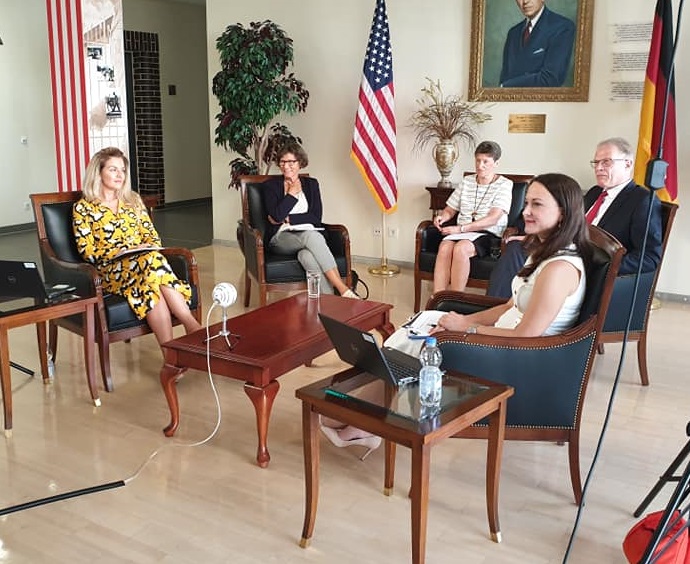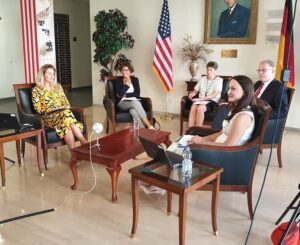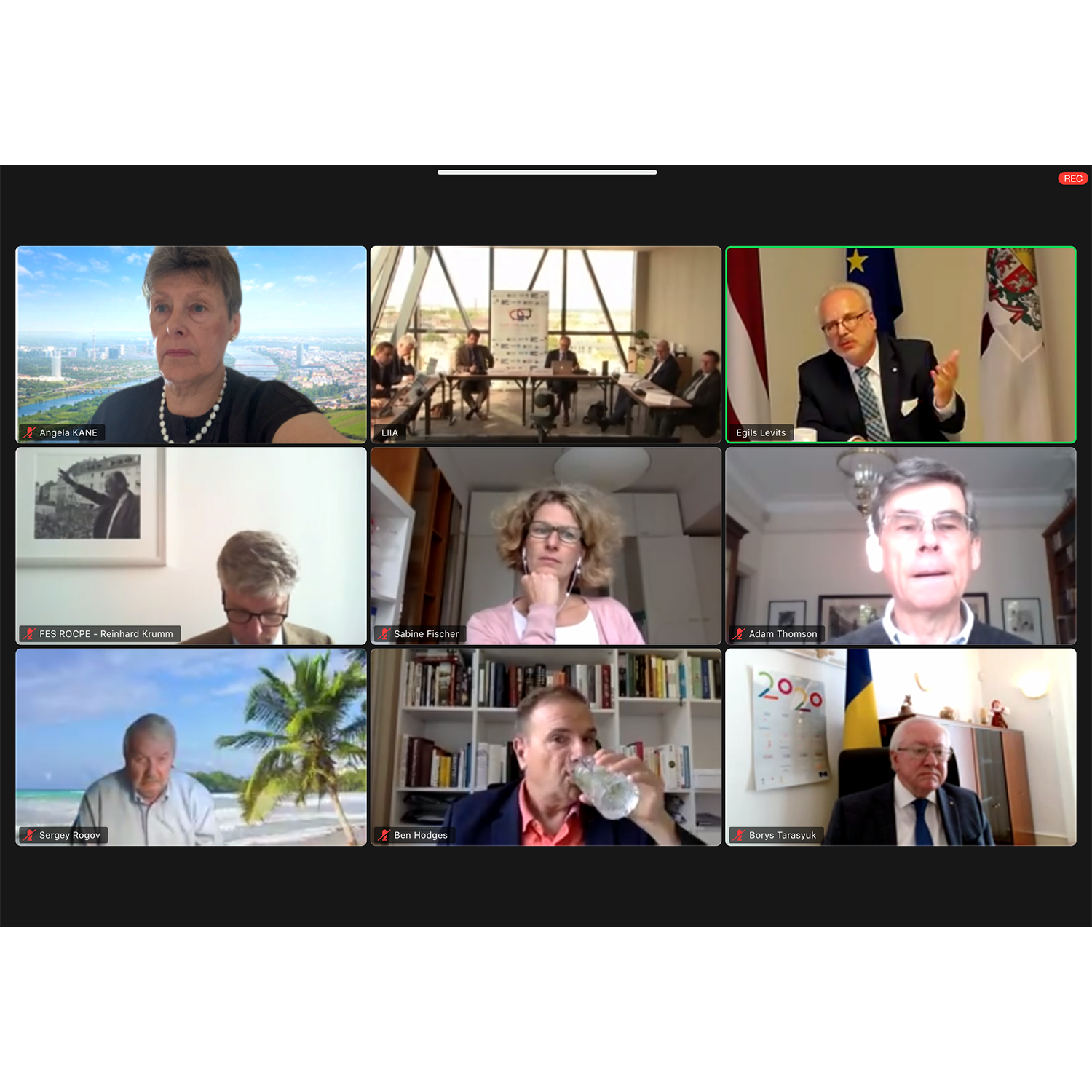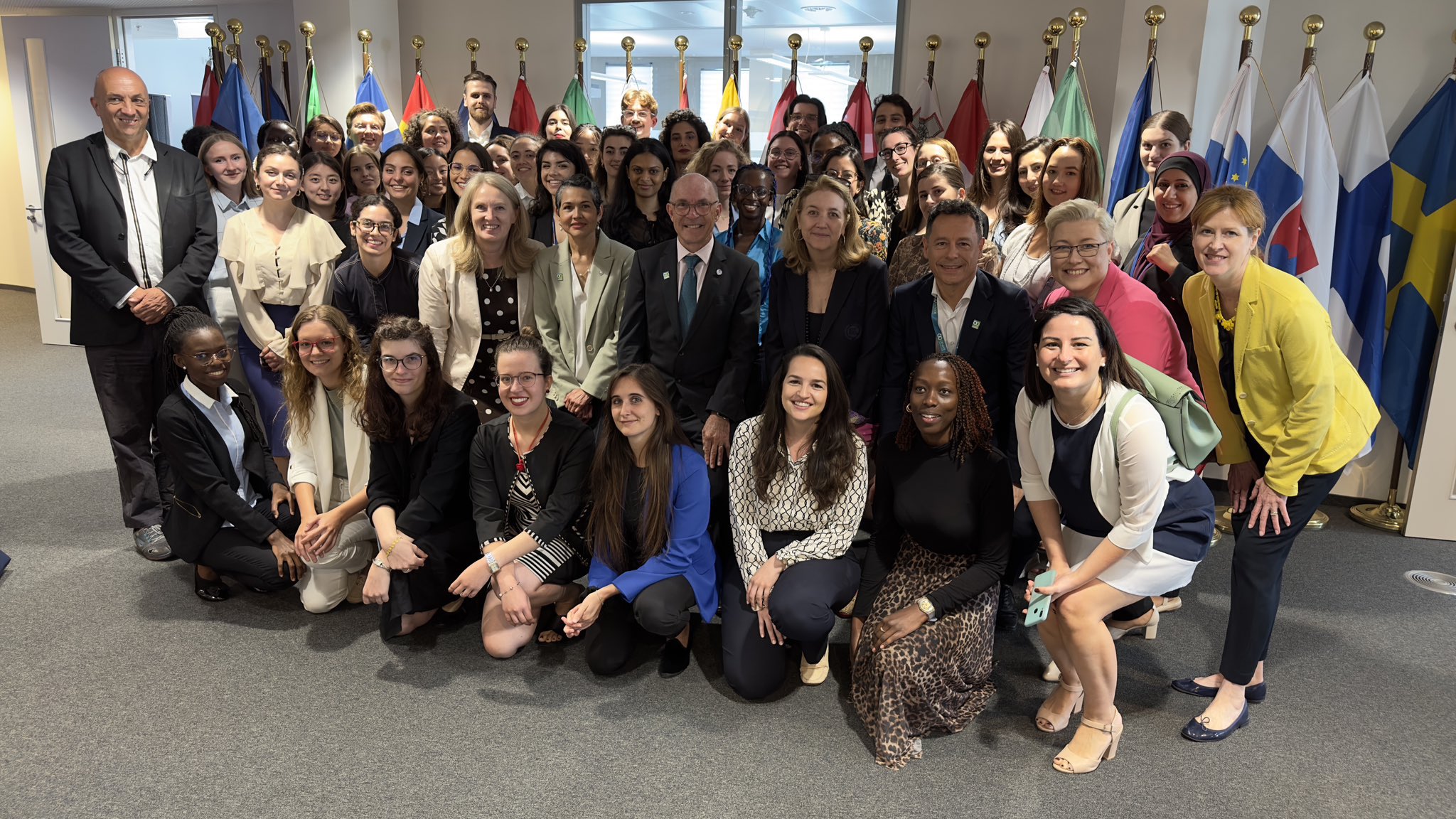

There has been progress on UN Security Council Resolution (UNSCR) 1325 on women, peace and security (WPS) since its adoption in 2000, but much work remains to be done for the vision of the UNSCR to be fully implemented. VCDNP Senior Fellow Angela Kane, also the former UN High Representative for Disarmament Affairs and UN Undersecretary General for Management, discussed UNSCR 1325 and the status of its implementation in a panel discussion at the George C. Marshal European Center for Security Studies that took place on 25 August 2020.
Beginning her remarks, Ms. Kane observed that UNSCR 1325, which was meant to increase representation and participation of women at all decision-making levels, bring a gender perspective into peace operations and increase attention to the protection of women's rights, was a formal recognition by the Security Council that women are crucial to peace processes and international security. However, 20 years later female representation in diplomatic leadership positions is still lagging. Of 193 countries, 22 have female heads of state and many countries have never had a female head of state. Only four countries have at least 50 percent women in the national legislature. Worldwide, the proportion of women in national parliaments is 24 percent, an increase of just one percent per year since 2015. Clearly, said Ms. Kane, there is still room for progress.
Further, Ms. Kane noted that despite progress on UNSCR 1325, much of the language used to promote it speaks of aspirations and encouragement rather than concrete steps towards its implementation. Even when there is language in resolutions related to the UNSCR 1325, it draws debate in the Security Council even today. According to Ms. Kane, it is time to look ahead and take concrete steps to further the Resolution's goals.
The UN Security Council has the tools to address gender issues in peace and security, including appointing more gender advisers in peace operations, imposing targeted measures for sexual violence, interacting more consistently with the Special Representative on Sexual Violence and others. In Ms. Kane's view, these tools can be used more consistently in UN operations. In addition, there could be an increase in specific briefings on this subject by civil society, monitoring of the implementation of relevant resolutions, country-specific reporting on these issues and the inclusion of sexual and gender-based violence in the criteria for sanctions regimes.
However, countries that support the women, peace and security agenda will need to bear in mind the divisions that exist between Member States on these issues, as some countries continue to question whether WPS belongs in the Security Council at all. While weighing their options carefully, Ms. Kane expressed the view that using individual peace operations may be the best way forward.
"Having worked for the United Nations for many years, I am the eternal optimist," said Ms. Kane. "Gender equality as a concept is not something that needs to be fought for anymore. But now, here, and everywhere and every day, gender equality needs to be implemented. In diplomacy. Everywhere. By all of us. Jointly. Every day."

